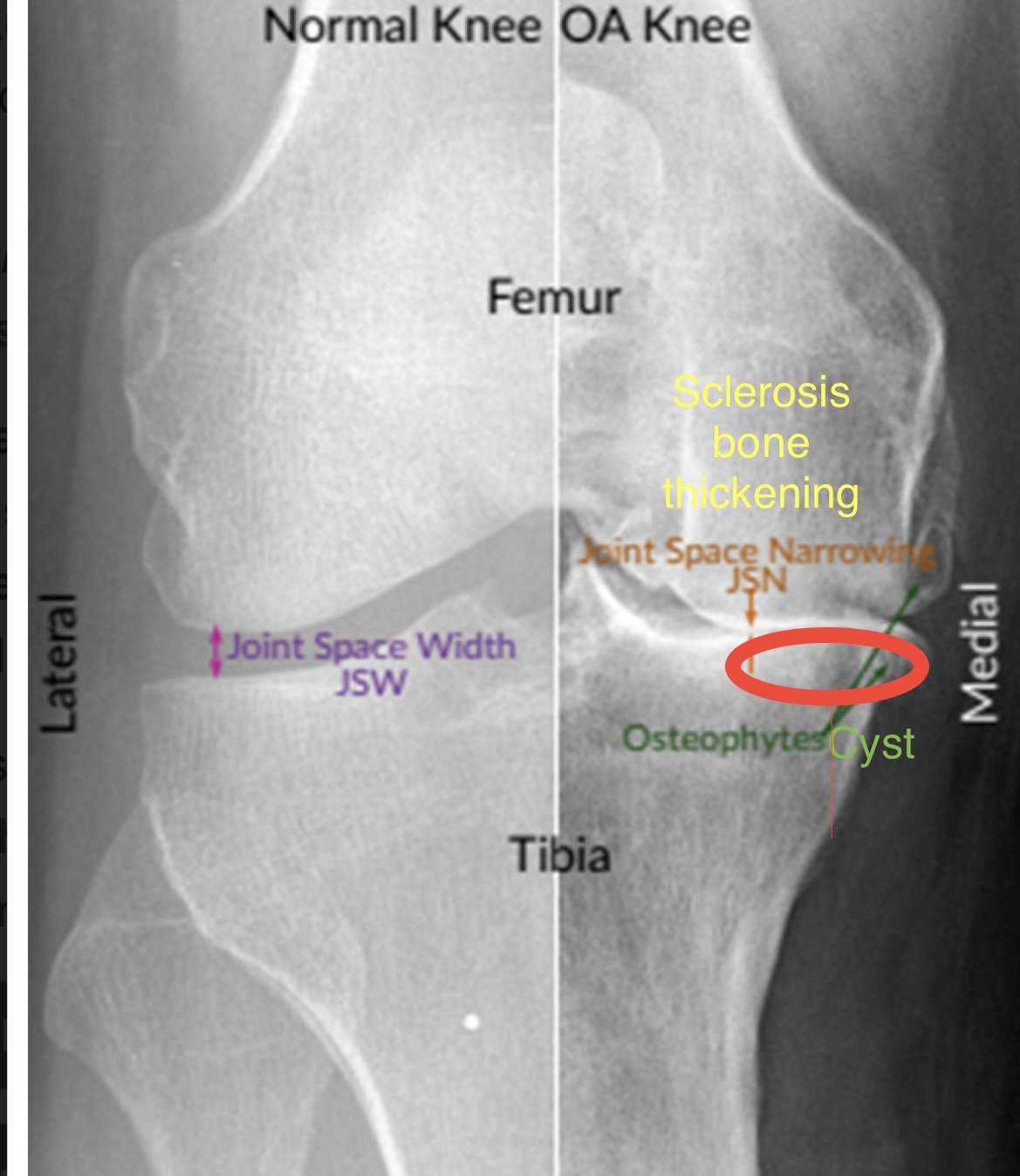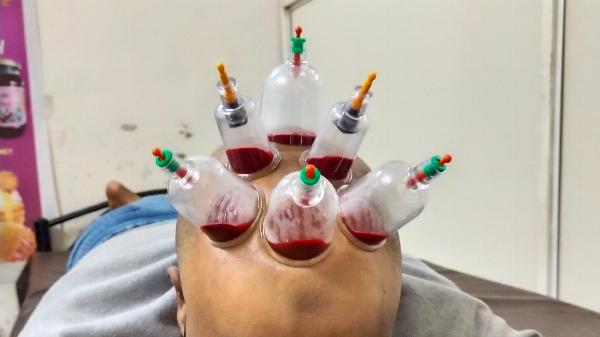Understanding Knee Osteoarthritis in London: A Comprehensive Guide

Strong 8k brings an ultra-HD IPTV experience to your living room and your pocket.
Knee osteoarthritis is a common yet debilitating condition that affects millions worldwide, including many in London. As a degenerative joint disease, knee osteoarthritis results from the gradual wearing down of cartilage, leading to pain, stiffness, and reduced mobility. This article delves deep into the causes, symptoms, diagnosis, and treatment options available to London residents, providing a detailed overview to better understand this widespread condition.
What Is Knee Osteoarthritis?
Knee osteoarthritis, often referred to as degenerative arthritis, occurs when the protective cartilage that cushions the ends of the bones wears down over time. Without this vital cushioning, the bones of the knee joint rub against each other, causing pain, swelling, and stiffness. Osteoarthritis can affect people of all ages but is most common in individuals over 50 years old, especially in large urban centers like London, where sedentary lifestyles and high-impact activities are prevalent.
Key Causes of Knee Osteoarthritis
While the exact cause of knee osteoarthritis is not entirely understood, several factors increase the risk:
Age: As we age, the cartilage in our knees naturally wears down.
Genetics: A family history of osteoarthritis can predispose individuals to the condition.
Obesity: Excess weight places additional stress on the knee joints, accelerating cartilage wear.
Previous Injuries: Past trauma or surgeries can increase the risk of developing knee osteoarthritis.
Occupation: Jobs that require repetitive knee movements, heavy lifting, or long periods of standing are associated with an increased risk of osteoarthritis.
London’s fast-paced urban environment and lifestyle may inadvertently contribute to the prevalence of knee osteoarthritis, making it essential for residents to recognize potential risk factors early.
Recognizing the Symptoms
The symptoms of knee osteoarthritis often develop gradually and worsen over time. Key signs to look out for include:
Pain: Pain in the knee, particularly after activity or prolonged periods of inactivity.
Stiffness: Stiffness in the knee, especially in the morning or after sitting for extended periods.
Swelling: The knee may appear swollen due to inflammation caused by the breakdown of cartilage.
Reduced Mobility: A decrease in the range of motion of the knee joint, limiting everyday activities such as walking, climbing stairs, or bending.
Grinding Sensation: A noticeable grinding or popping sensation when moving the knee, caused by the bones rubbing together.
For those living in London, early identification of these symptoms is crucial to seeking appropriate treatment and preventing further joint damage.
Diagnosis of Knee Osteoarthritis in London
In London, a proper diagnosis of knee osteoarthritis begins with a detailed medical history and physical examination. Key diagnostic methods include:
X-Rays: These can reveal joint space narrowing, bone spurs, and cartilage loss.
MRI Scans: For a more detailed view of the soft tissues in the knee, an MRI may be used to assess the extent of cartilage damage.
Blood Tests: While no specific blood test diagnoses osteoarthritis, blood tests can rule out other conditions like rheumatoid arthritis.
London's renowned hospitals and orthopedic specialists offer advanced imaging technology and diagnostic tools, ensuring that patients receive accurate assessments and tailored treatment plans.
Treatment Options for Knee Osteoarthritis
In London, the treatment options for knee osteoarthritis are extensive, with both non-surgical and surgical solutions available.
Non-Surgical Treatments
Physical Therapy: Regular physical therapy can help strengthen the muscles around the knee, improve mobility, and reduce pain.
Weight Management: Maintaining a healthy weight can alleviate the pressure on the knee joints, slowing the progression of osteoarthritis.
Medications: Over-the-counter pain relievers, such as ibuprofen and acetaminophen, can reduce inflammation and discomfort.
Injections: Corticosteroid injections are commonly used to reduce inflammation and provide temporary relief. Hyaluronic acid injections may also be considered to lubricate the joint.
Surgical Treatments
If non-surgical methods are ineffective, surgery may be recommended. In London, several surgical options are available:
Arthroscopy: A minimally invasive procedure that involves the use of small incisions and a camera to clean out damaged cartilage or bone fragments in the knee joint.
Osteotomy: This procedure involves cutting and reshaping the bones to relieve pressure on the knee joint, usually for younger patients with localized damage.
Partial or Total Knee Replacement: A more invasive option, knee replacement surgery involves replacing the damaged cartilage and bone with a prosthetic joint. London’s top orthopedic surgeons offer advanced techniques for knee replacement, ensuring shorter recovery times and optimal outcomes.
Lifestyle Changes and Home Remedies
In addition to professional treatment, several lifestyle modifications can help manage knee osteoarthritis symptoms:
Exercise Regularly: Low-impact activities such as swimming, walking, or cycling can strengthen the muscles around the knee without putting excessive strain on the joint.
Hot and Cold Therapy: Alternating between hot and cold compresses can help reduce swelling and alleviate pain.
Use Supportive Footwear: Wearing shoes with good arch support can help distribute body weight more evenly, reducing stress on the knees.
Assistive Devices: Canes, braces, or orthotic inserts can provide additional support and stability.
In a bustling city like London, staying active is essential. However, balancing physical activity with proper rest and joint care is key to managing osteoarthritis and maintaining a good quality of life.
Preventing Knee Osteoarthritis
While it is impossible to completely prevent knee osteoarthritis, certain steps can be taken to reduce the risk:
Maintain a Healthy Weight: By keeping your weight within a healthy range, you can reduce the strain on your knee joints.
Exercise Regularly: Strengthening the muscles around the knee can provide added joint support.
Avoid High-Impact Activities: Opt for low-impact exercises that do not place undue stress on the knees.
Stay Hydrated: Drinking plenty of water helps keep the cartilage in the knee joints well-lubricated.
For London residents, these preventive measures can help delay the onset of knee osteoarthritis, ensuring healthier joints well into later life.
Knee Osteoarthritis Treatment Centers in London
London is home to several world-class medical facilities and orthopedic specialists. Whether seeking non-surgical treatments or advanced surgical interventions, patients can access a wide array of services, including:
Private Clinics: Offering personalized treatment plans and shorter waiting times, private clinics in London provide top-tier care for knee osteoarthritis.
NHS Services: The National Health Service offers comprehensive care for osteoarthritis, including access to physiotherapy, pain management clinics, and surgery.
From Harley Street to St Thomas' Hospital, patients in London have access to some of the best healthcare providers for knee osteoarthritis treatment.
Conclusion
Knee osteoarthritis is a complex condition that requires a multi-faceted approach to treatment. For residents of London, recognizing the early signs of the disease and seeking prompt medical advice is essential to managing symptoms and preventing further joint damage. With a range of non-surgical and surgical options available, alongside lifestyle modifications, individuals can take proactive steps to improve their quality of life despite osteoarthritis. London offers cutting-edge medical services, ensuring patients receive the best possible care for their knee osteoarthritis.
Note: IndiBlogHub features both user-submitted and editorial content. We do not verify third-party contributions. Read our Disclaimer and Privacy Policyfor details.




